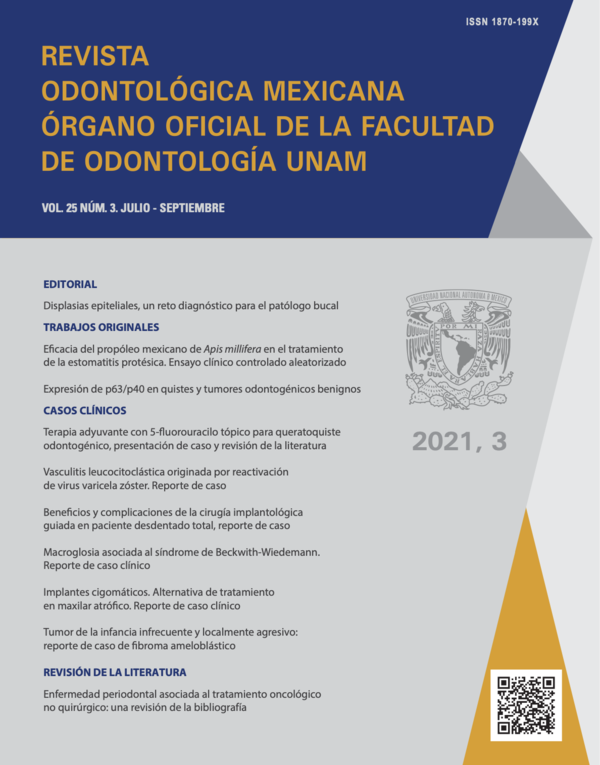Leukocytoclastic vasculitis due to reactivation of virus varicella zoster. Case report
Contenido principal del artículo
Resumen
Vasculitis is an inflammatory process of blood vessels, which can affect vessels of different calibers causing necrosis of tissues and organs. The type of vasculitis with the highest incidence is the cutaneous one called leukocytoclastic vasculitis (LCV) through mainly by a hypersensitivity process or formation of immune complexes to different known and unknown factors. The diagnosis of LCV includes a large number of laboratory and imaging parameters aimed at ruling out systemic disease, which causes delay in starting treatment, prolongation of ischemia and increased tissue damage. The fundamental contribution of the present report case is to show the importance of timely diagnosis of skin limited small vessel LCV to apply an early therapeutic scheme that produces the least possible damage to the affected tissue. A case of a 54-year-old female patient is presented with mucosal and cutaneous manifestations of reactivation of the varicella-zoster virus as a triggering factor for LCV. An adequate protocol was proposed to diagnose through anamnesis and exhaustive physical examination that would allow guiding the paraclinical evaluation to rule out a systemic disease and to obtain a comprehensive and timely therapeutic approach with short-term resolution of the pathology.
Detalles del artículo
Citas en Dimensions Service

Revista Odontológica Mexicana por Universidad Nacional Autónoma de México se distribuye bajo una Licencia Creative Commons Atribución-NoComercial-SinDerivar 4.0 Internacional.
Basada en una obra en http://revistas.unam.mx/index.php/rom.
